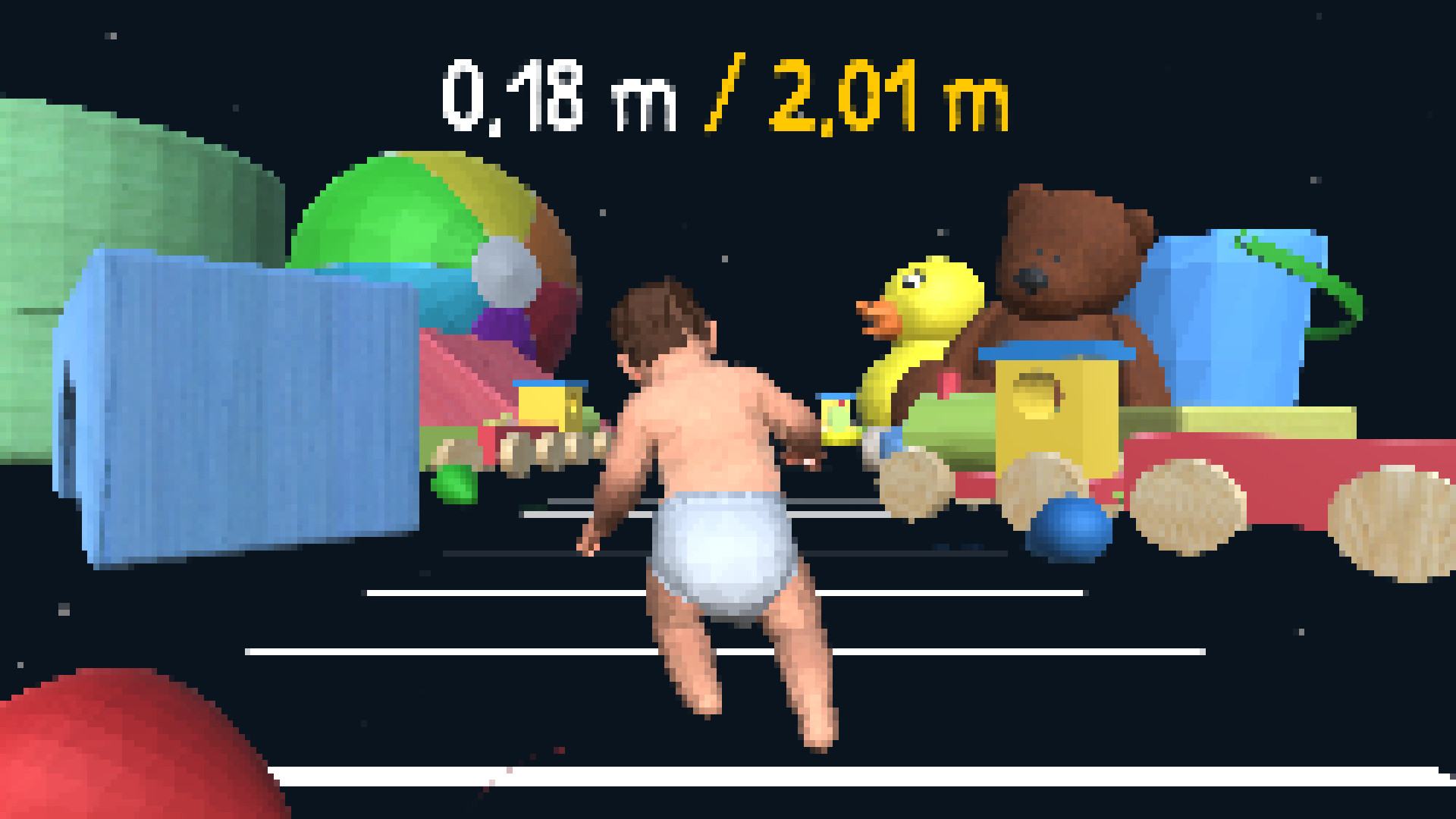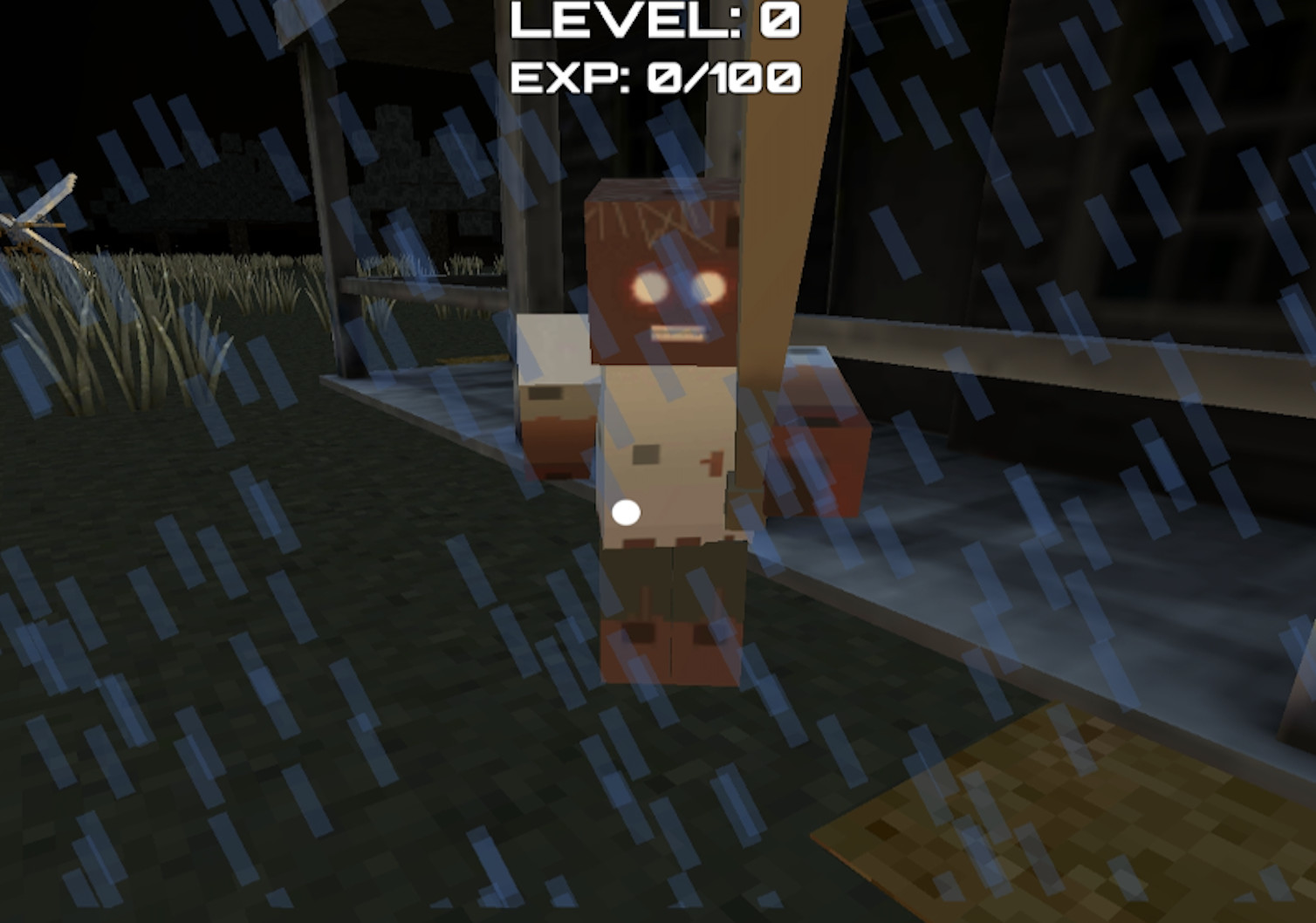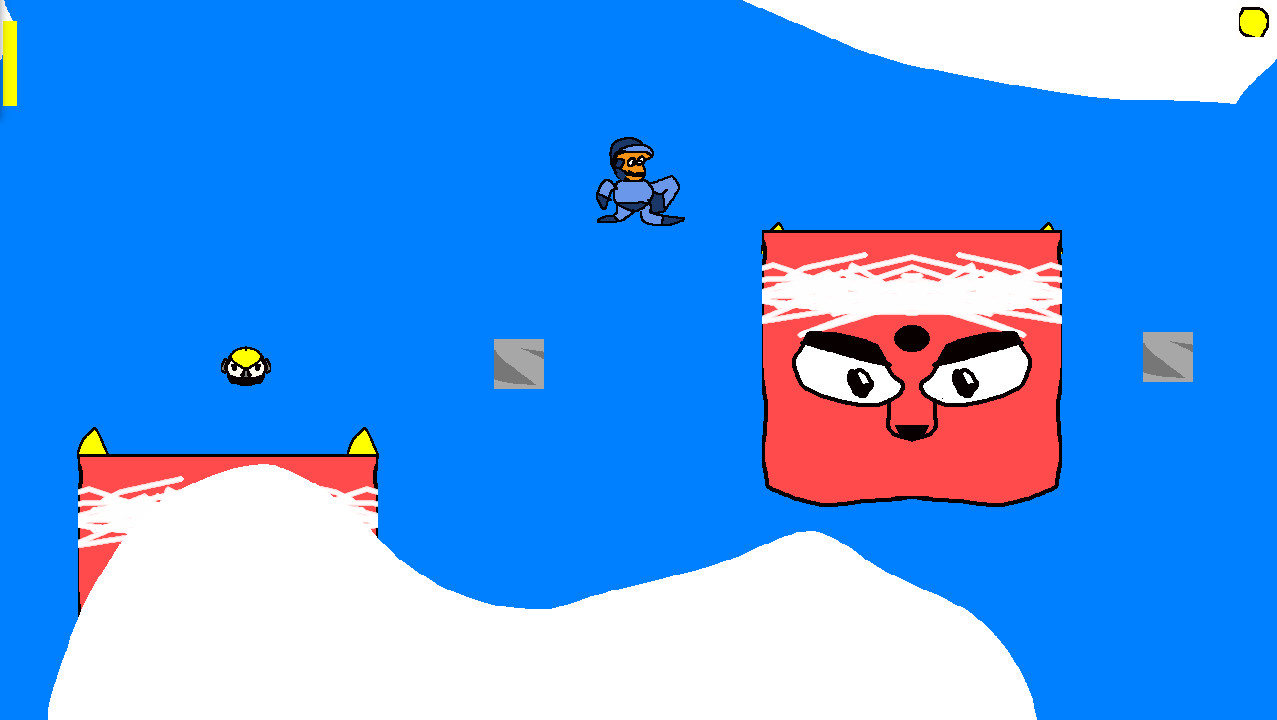Steam lets bizarre, obscure games rub shoulders with big-budget hits, and I love it that way
Small, amateurish games should live forever, even if they don't prosper.

Most know videogames as polished multi-million dollar entertainment products with unfathomably expensive marketing budgets. But for every Grand Theft Auto 5, there are hundreds (perhaps thousands) of games like Baby Walking Simulator, or Block Granny Horror, or Meegah Mem 2. These games have little hope of rising above Steam’s curation algorithms: they’re weird, aesthetically maladjusted, and at a guess, they probably weren’t created to rake in billions of dollars for their creators.
People talk about ‘curation’ a lot when it comes to PC gaming storefronts: some argue that there’s not enough curation, others argue in favour of a free-for-all approach. There are good arguments to be made on both sides, and those arguments have been happening (with exhausting regularity) for years.
I don’t believe multi-billion dollar companies like Valve or Epic should let hateful or abusive material onto their stores, but I really don’t think we should let huge tech companies decide for us what is “art” or “fun” or “worthy”. If there does exist a mythical place of perfection in-between “anything goes” and “only things rich people think we should play”, I hope small amateurish games are still allowed to exist, and I don’t mean “amateurish” in the pejorative sense.

Steam is rife with meme and hentai games at the moment. But it’s also rife with utter weirdness, material that you’d never find on GOG or the Epic Games Store. Browsing Steam of a Monday morning (which I do every week in order to file this column) can sometimes prove so disarranging that I’ll need to take a walk afterwards. But rarely does a week go by when I don’t find something utterly fascinating, a small jewel among the rough that has a certain mysterious and alluring aura. Like, for example, Block Granny Horror.
“Block granny is a survival game,” reads the description. “Try to survive as long as possible on the island by defeating terrible block grannies. You can lose if you run out of life or someone of [sic] your family is dead.”
Based on a Minecraft meme, no one gives a single goddamn about Block Granny Horror, and I daresay it’ll stay that way. I don’t like to make assumptions about the quality of games before I’ve played them, but the screenshots and trailer for Block Granny Horror aren’t particularly promising when measured against, say, Rust.

But I’m happy it exists. There is a lot of bad faith stuff on Steam: exploitative asset flips (though I’m finding them less regularly), blatant zeitgeist clones and low-effort hentai puzzle games are the most common. But Block Granny Horror is a survival game with horror elements that, while perhaps not very good at all, is a work that one or several (or many!) people spent their time making. Why did they make it? I don’t know. Did they have great hopes of profiting from it? I hope not. One thing is utterly certain: it exists, and that’s beautiful.
The biggest gaming news, reviews and hardware deals
Keep up to date with the most important stories and the best deals, as picked by the PC Gamer team.
what I like about Steam is that a small unpolished gem (or just a flatout terrible game) can rub shoulders with games made on astronomical budgets
I prefer most things to come with a few rough edges. I still buy music released on cassettes, I still buy zines. I like things that are made for the sake of making things, I like things that aren’t shouting at me and the world for money and attention. Most games we know about are sleek commodities and they’re meant to appeal to everyone. Most games are made by incredibly talented people but are hollow and meaningless. The Division 2 isn’t art, if you ask me: it’s a toy. But Block Granny Horror? It’s art.
Itch.io is a very good site for discovering small, unpolished gems. But what I like about Steam is that a small unpolished gem (or just a flatout terrible game) can rub shoulders with games made on astronomical budgets. Earlier this week I found Memory Eater, for example. Would you look at that art style! I can’t find much about its creator NemoSoda: there’s a Russian artist with that name on Twitter whose work looks strikingly similar. This is a game that someone (or several people) put a lot of work into and then released unceremoniously unto the world. You must come to the enigmatic Memory Eater: it’s not going to hunt you down and beg you for money.
Above: An early build of Memory Eater
Or, uh, what about this game called I Wanna Brother, which is all about a kid trying to get his folks to, uh, create a brother for him? It’s definitely not the most aesthetically pleasing game I’ve ever seen, but the idea is fun. Crucially, I bet you’ve never heard of it before. It just kinda sprouted in Steam’s database, there’s no story, no marketing angle, no fanfare. Someone made it, felt pleased with it, and put it into the world. Most recently, stuff like Monoa City Parking, Jaxon The Thief, Sanitarium Rush and Sad have piqued my interest. Small curiosities, human-made, stoic with their Steam app IDs.
I think one day, assuming Steam’s library isn’t unceremoniously purged, that we’ll be grateful that this unwieldy library exists. If anything, it might tell us things about ourselves that are too close to notice, right now. Those meme games: one day they’ll provide a horrifyingly vivid portrait of the 2010s, from the remove of several decades. Also, how will we know vaporwave ever happened if there weren’t at least two vaporwave-themed games released on Steam per week? Many say Steam is a mess, but I like it that way. Make it messier, upload your messes onto it. The more the better.

Shaun Prescott is the Australian editor of PC Gamer. With over ten years experience covering the games industry, his work has appeared on GamesRadar+, TechRadar, The Guardian, PLAY Magazine, the Sydney Morning Herald, and more. Specific interests include indie games, obscure Metroidvanias, speedrunning, experimental games and FPSs. He thinks Lulu by Metallica and Lou Reed is an all-time classic that will receive its due critical reappraisal one day.

